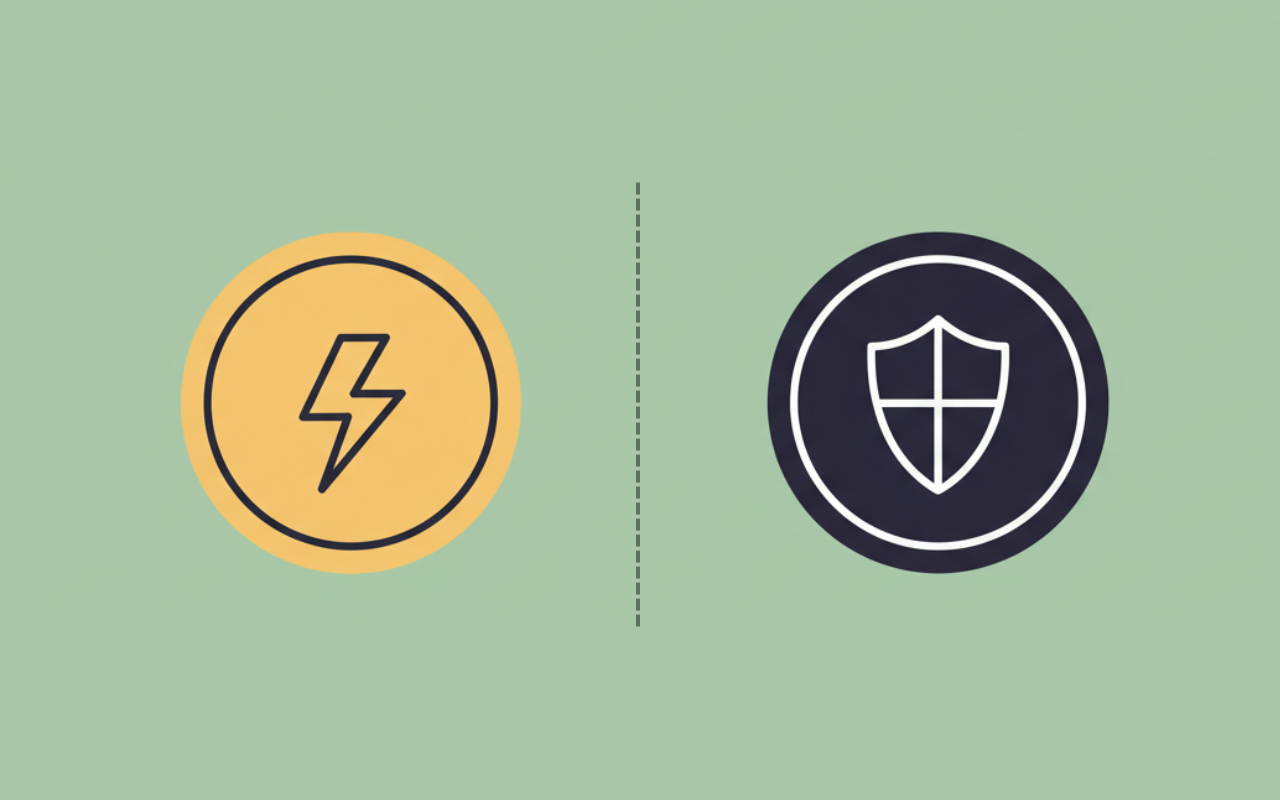In the ever-evolving world of cryptocurrency, there’s a lot of jargon floating around, and “crypto token” is one term that often pops up. If you’ve found yourself wondering what exactly a crypto token is, you’re not alone. Let’s break it down in a straightforward way and explore the difference between utility tokens and security tokens two key categories in the crypto space.

What Exactly Is a Crypto Token?
At its core, a crypto token is a digital asset created on a blockchain. Unlike cryptocurrencies like Bitcoin or Ethereum, which have their own blockchains, tokens are typically built on existing blockchain platforms. For example, Ethereum is a popular blockchain for creating tokens using its ERC-20 standard.
Think of a blockchain as the foundation of a house, while tokens are the furniture and decor that add functionality and purpose to the space. Tokens can represent a variety of things, ownership of an asset, voting rights in a project, access to services, or even physical items in the real world.
Key Characteristics of Tokens
- Blockchain-Based: Tokens live on a blockchain, inheriting its security and transparency.
- Programmable: Smart contracts dictate a token’s behavior, enabling diverse use cases.
- Interoperable: Tokens adhering to standards like ERC-20 can interact with wallets, exchanges, and dApps.
- Decentralized: Tokens operate without a central authority, aligning with the ethos of blockchain.
Why Do Tokens Matter?
Tokens are incredibly versatile and have become an essential part of the crypto ecosystem. They power decentralized applications (dApps), enable fundraising through Initial Coin Offerings (ICOs), and even represent real-world assets like real estate or art. Essentially, tokens make it possible to create new types of digital economies and communities.
However, not all tokens are created equal. They can be categorized into different types based on their purpose and functionality. The two most common types are utility tokens and security tokens.
[Utility Tokens] The Key to Accessing Services
Utility tokens are designed to provide access to a specific product or service within a blockchain ecosystem. Think of them as digital keys or vouchers that unlock certain features or benefits. These tokens don’t represent ownership or investment in a company. Instead, they have value because they’re useful within their respective platforms.
Examples of Utility Tokens:
- Basic Attention Token (BAT): Used within the Brave browser to reward users for viewing ads or to tip content creators.
- Filecoin (FIL): Allows users to pay for decentralized storage services on the Filecoin network.
- Chainlink (LINK): Powers smart contract interactions by connecting off-chain data with blockchain applications.
Utility tokens are often distributed during ICOs or token sales as a way to raise funds for new projects. Investors buy these tokens with the expectation that they’ll have value when the platform becomes operational.
Why Are Utility Tokens Popular?
Utility tokens are appealing because they give users direct access to a platform’s services without needing intermediaries. They’re also relatively straightforward from a regulatory standpoint since they’re not considered investments in most cases.
[Security Tokens] The Digital Investment Asset
Security tokens, on the other hand, represent ownership or investment in an asset, company, or project. These tokens are essentially digital versions of traditional financial securities like stocks, bonds, or real estate. Because they’re tied to real-world assets and regulated under securities laws, security tokens are subject to stricter rules than utility tokens.
→ Examples of Security Tokens:
- tZERO (TZROP): A security token that represents equity ownership in the tZERO platform.
- RealT: Tokens that allow fractional ownership of real estate properties.
- SPiCE VC: A tokenized venture capital fund offering investors exposure to startups in the blockchain space.
→ Why Are Security Tokens Important?
Security tokens bring transparency and efficiency to traditional finance by digitizing assets and transactions. For example, owning a fraction of a high-value property becomes much easier with security tokens since they eliminate many barriers like paperwork and intermediaries.
They also open up investment opportunities to a global audience. Imagine being able to invest in real estate halfway across the world with just a few clicks, security tokens make this possible.
→ The Regulatory Side
Because security tokens are considered investments, they must comply with securities regulations in their respective jurisdictions. This means projects issuing security tokens often need to register with regulatory bodies like the SEC (in the U.S.), which can make the process more complex compared to utility tokens.
[Key Differences] Utility Tokens vs Security Tokens
→ Here’s a quick comparison to help you understand the distinction between these two types of tokens:
| Feature | Utility Tokens | Security Tokens |
|---|---|---|
| Purpose | Access to services or products | Represents ownership or investment in an asset |
| Regulation | Generally not considered securities | Subject to securities laws |
| Examples | BAT, FIL, LINK | tZERO, RealT, SPiCE VC |
| Value Driver | Based on platform utility | Tied to underlying asset or company performance |
How Do You Know If a Token Is a Security?
A simple way to determine if a token is a security is by using the Howey Test, which comes from U.S. securities law. According to this test, an asset is considered a security if it meets these criteria:
- It involves an investment of money.
- The investment is in a common enterprise.
- There’s an expectation of profit.
- The profit comes from the efforts of others.
If a token ticks all these boxes, it’s likely classified as a security and must comply with relevant regulations.
Which Token Type Should You Care About?
It depends on your goals! If you’re interested in using blockchain-based platforms or supporting new projects, utility tokens might be more relevant to you. On the other hand, if you’re looking for investment opportunities tied to real-world assets or companies, security tokens could be worth exploring. It’s important to do your homework before buying any token, understand what it represents, how it works, and whether it aligns with your interests or investment strategy.
Real-World Implications
The utility vs. security debate has shaped the crypto industry. During the 2017-2018 Initial Coin Offering (ICO) boom, many projects issued “utility tokens” that were effectively securities, leading to SEC crackdowns. Today, projects are more cautious, with some opting for Security Token Offerings (STOs) to comply with regulations while leveraging blockchain’s benefits.
For users, knowing a token’s classification helps you make informed choices. If you’re using a dApp like Uniswap, its UNI token (a utility token) grants governance rights, not ownership in Uniswap. Conversely, investing in a security token tied to a real estate project means you’re betting on the property’s value, not just the platform’s popularity.
Conclusion
Crypto tokens are an exciting part of the blockchain revolution, offering endless possibilities for innovation and growth. Whether they’re powering decentralized platforms as utility tokens or digitizing investments as security tokens, these digital assets are reshaping how we think about ownership and value.
As with any new technology, it’s important to stay informed and cautious. The crypto world moves fast, but with a little knowledge under your belt, you’ll be better equipped to navigate this fascinating space. So next time someone mentions crypto tokens, you can confidently join the conversation and maybe even teach them a thing or two.


